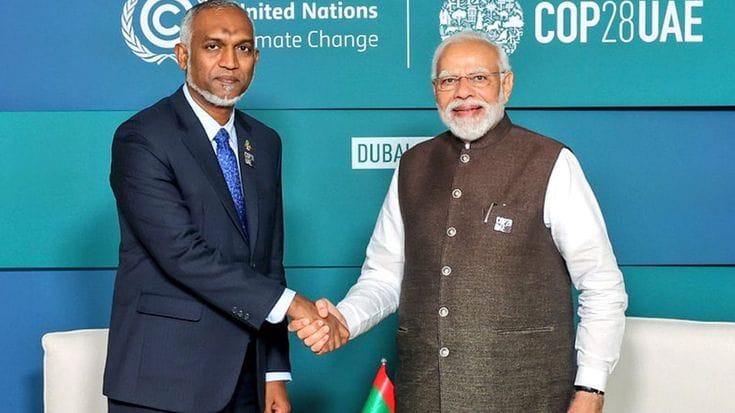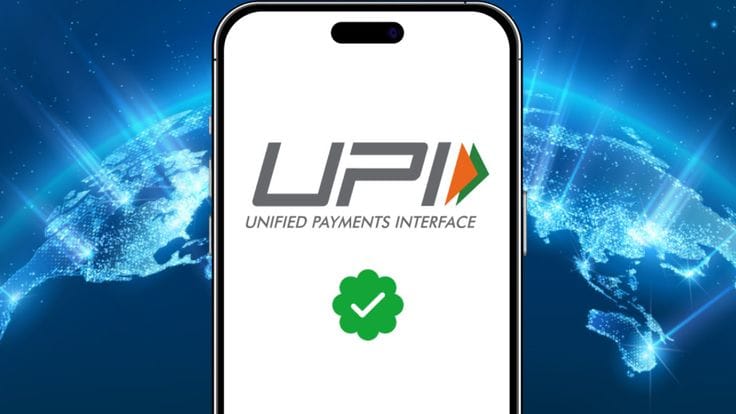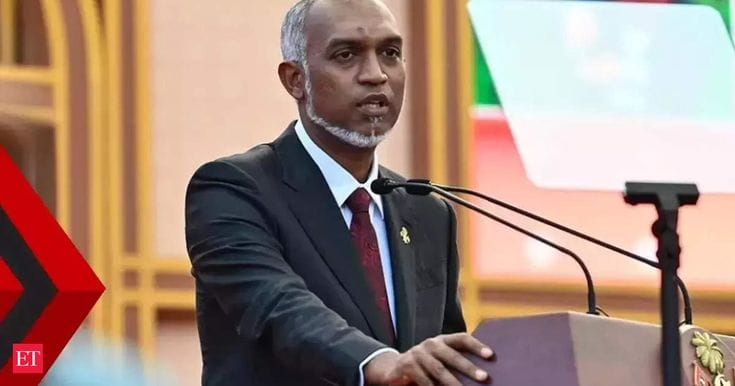President Mohamed Muizzu Introduces India’s UPI in Maldives
With the world now increasingly integrating, the way of electronic payment systems comes across as something vital in filling this economic divide and enhancing regional linkage. A long-overdue move by Maldivian President Mohamed Muizzu towards bringing India’s Unified Payments Interface (UPI) into the Maldives marked one of those moments for the countries – in what ways digital innovation could cut across borders, and how this can further strengthen regional collaborations. In this blog, we have looked at the significance, benefits, and possible risks brought by UPI into the Maldives and what that same might mean for further Indo-Maldivian collaboration.

UPI in the Maldives: A Strategic Choice
The National Payments Corporation of India, NPCI unveiled the latest real-time payment system called the Unified Payments Interface. UPI started as one of India’s most prominent electronic payment systems since 2016; so far, billions of transactions are made monthly with it and facilitate frictionless, secure, and instantaneous person-to-person or peer-to-peer, person-to-merchant payments. It places the system on a mobile platform that uses QR codes. So, access and convenience are ensured with the help of this mechanism. It now hits Maldives shores, going to change the face of a land that, till recently, relied exclusively on cash and very small card services for transactions.
This act of the President of the Maldives in allowing UPI will not only modernize the Maldivian economy but aligns with the broader trend in the region to seek digital transformation. As the close neighbor and strategic partner of India, the country stands to gain from such an association that would push forward financial inclusion and support the tourism sector. Tourists arriving from India comprise a very high percentage of tourists into the Maldives.
Deepening Economic and Tourism Links
Maldives is a tourism-driven economy with hundreds of thousands of tourists visiting this island nation each year. The country where most of the inflow of tourism takes place is India. Thus, introduction of UPI would make travel expense a hassle-free affair for the tourists from India. Because this integration through UPI enables mobile phone-based transactions, as a result, hassle on currency exchange and reduction on reliance on cash is reduced while Indian visitors can do that change easily, as the former has become an everyday commodity in every Indian’s home with UPI being one among such tools, and therefore tourist stays will not face a considerable hardship financially.
Payments will become speedier and more efficient for local Maldivian business enterprise, especially in hospitality, food, and transportation. This will help increase spends as well and thus benefit the local economy. Moreover, easy payment will enhance attraction to Indians and make this a desired destination for travel further increasing tourism into a win-win proposition for both the countries.
Backing Financial Inclusion

One of the promises of UPI is to bring this vision to the shores of the Maldives to support the concept of financial inclusion. The banking system in Maldives is an underdeveloped system wherein people on some remote islands still lack the facility of direct physical access to the banks. By bringing UPI onboard, the government could promote digital transactions that reached more corners of the archipelago. UPI does not require investing in expensive infrastructure to start working-it only requires using a smartphone and internet. An aspect that is particularly luring for the Maldives to adopt this system, due to the fact that as of now, it suffers from not enough financial services on different islands.
Low transaction costs for UPI will be an added advantage for the Maldives, especially when the banks charge unaffordable traditional fees for low-income users. Ease of UPI with affordability can democratize digital financial services and make the economy of the Maldives even more inclusive.
Challenges and Considerations
Huge but presents a few challenges in including UPI into the financial horizon of the Maldives. The foremost one is cybersecurity. Proper security mechanisms must be in place so that sensitive data does not reach fraudsters’ hands. Then, the Maldivian financial system needs to prepare itself against all the regulatory and operational obstacles in the form of aligning UPI’s framework with local financial policies, managing transaction limits for cross-border payments, etc.
It would require that the Maldives initiated the process of enlightening the public within it, especially the new digital users on the UPI system. Public needs information campaigns or even training sessions. To this end, the government must consider offering some incentives, even subsidies to have all citizens and the country’s local businesses join into the system.
Tolerance Towards Regional Integration and Later Cooperations

Taking it the second step toward total integration, if any president in Maldives will present the case of UPI in Maldivian markets it, actually, would make its approach to complete regional integration totally. As per a closely bound relationship of its economics and its near inter dependency status with India it moves with an increased setup so; after getting succeeded by establishing UPI within this tiny island nation many doors have been opened and such many options of digital infrastructure collaboration projects are coming across by and for the benefit of communities of Indo-Indian island nations.
This is part of a larger trend in South Asia, as digital payment systems create opportunities for cross-border ties, economic development, and regional unity. As more people start carrying out their transactions digitally, this partnership may eventually foster future innovations and collaborations between the two nations.
Conclusion
The introduction of India’s UPI system into the Maldives is a historic step in a position to alter interaction methods, transactions, and the movement between the Maldives and India. As honorable President Mohamed Muizzu also has visions among those heads, in no doubt it will completely bring modernization within the economy of Maldives as well as establish stability between that great nation and the one above. The fact that digital technology now forms an integral backbone of modern economies, UPI in the Maldives can herald in a new era of financial inclusion, economic growth, and regional solidarity, which in itself will benefit both sides in the long term.
